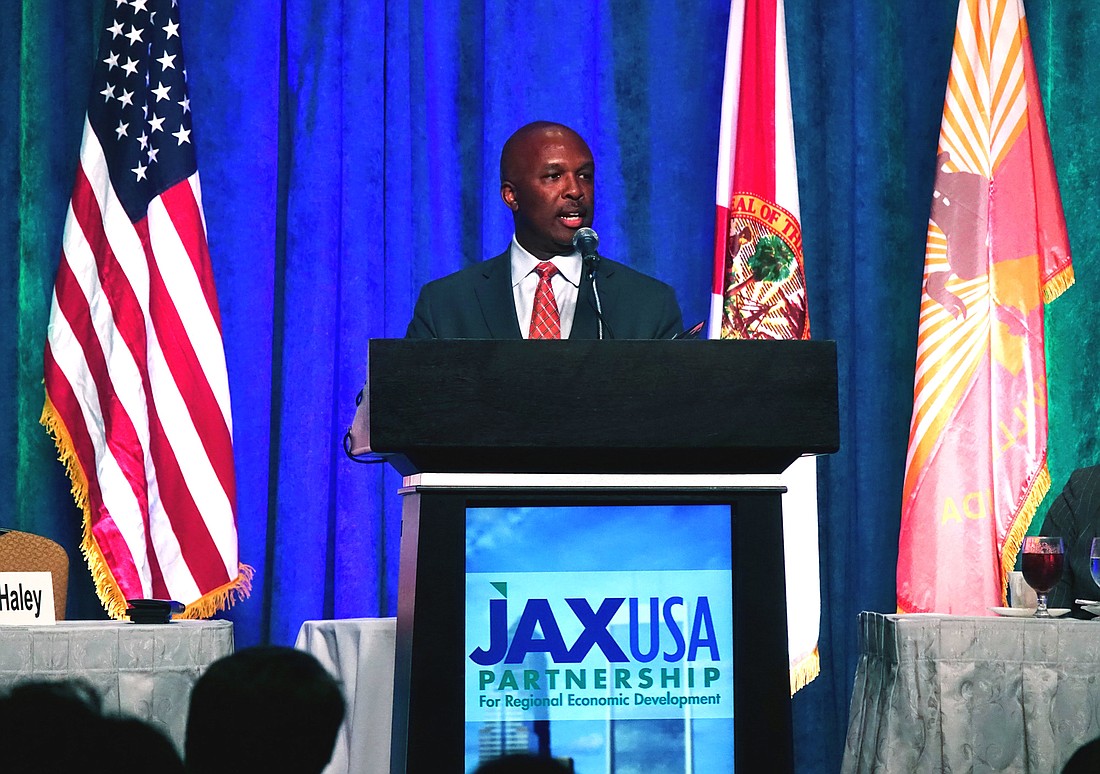
In 1870, it was Florida’s first nonmilitary hospital, and it has since grown into the region’s only Level I trauma center with 695 beds at two inpatient facilities, 400 physicians and more than 5,000 employees that serve about 700,000 patients each year.
That is the history behind UF Health Jacksonville, as told Tuesday by its CEO, Leon Haley Jr.
Addressing more than 500 members and guests at the JAXUSA Partnership quarterly luncheon at the Hyatt Regency Jacksonville Riverfront hotel, Haley said the hospital, with its clinics and educational and research programs, has become a $700 million operation and “a state-of-the-art facility that would meet the needs of the community.”
Haley said that through its affiliation with the University of Florida, 400 medical faculty members work with 370 medical students in residency programs, about 200 students are enrolled in the College of Pharmacy and there are 42 nursing students.
In addition, UF Health Jacksonville has a $22 million annual research budget that funds 200 studies and 300 pilot programs.
What isn’t widely known about UF Health Jacksonville is that it’s a recognized leader in oral and facial surgery and for complicated neurosurgery for patients that are turned away by other facilities.
The UF Health Proton Therapy Institute has treated 7,200 patients and is “the No. 1 center for children with brain cancer in the world,” Haley said.
Despite its reputation as a leader in health care facilities, UF Health Jacksonville is “not without our risk,” he said.
As Northeast Florida’s “safety net hospital,” 39 percent of patients are on Medicaid and another 25 percent are on Medicare.
UF Health provides $93 million a year in care that is not reimbursed, Haley said.
Even as the need for more indigent and low-income health care has grown, annual reimbursement, particularly from the state, has declined more than $35 million in the past five years, said Haley.
The facility also has infrastructure issues including the need for a new emergency department and a new trauma center.
Speaking to the audience of business leaders and elected officials, Haley said that to continue to be “the region’s most valuable health care asset,” additional partnerships with the business and philanthropic communities must be developed.
To continue to provide the range of health care to the entire community, and to continue to expand facilities, possibly to the Nocatee area and to the Wildlight mixed-use planned community in Nassau County, UF Health will depend on partnerships even more in the future, Haley said.
“None of this works unless we all get together.”